Emergency Psychiatric Crisis Nurse Cover Letter Examples

May 29, 2025
|
12 min read
Nail your emergency psychiatric crisis nurse cover letter with key skills and empathy. Discover how your words can calm like a reassuring presence. Learn to convey your readiness and proficiency for this vital role.
Rated by 348 people
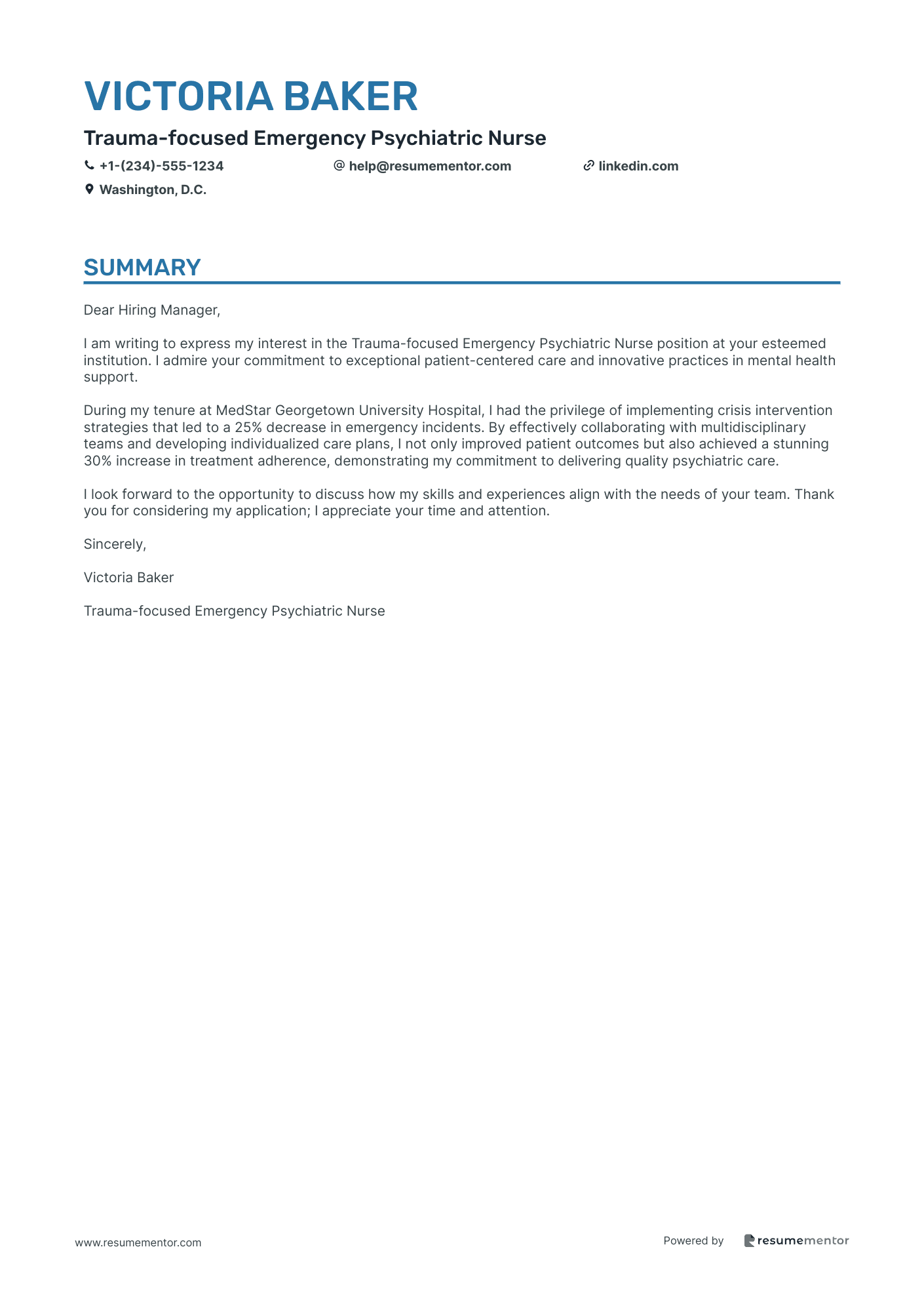
Trauma-focused Emergency Psychiatric Nurse
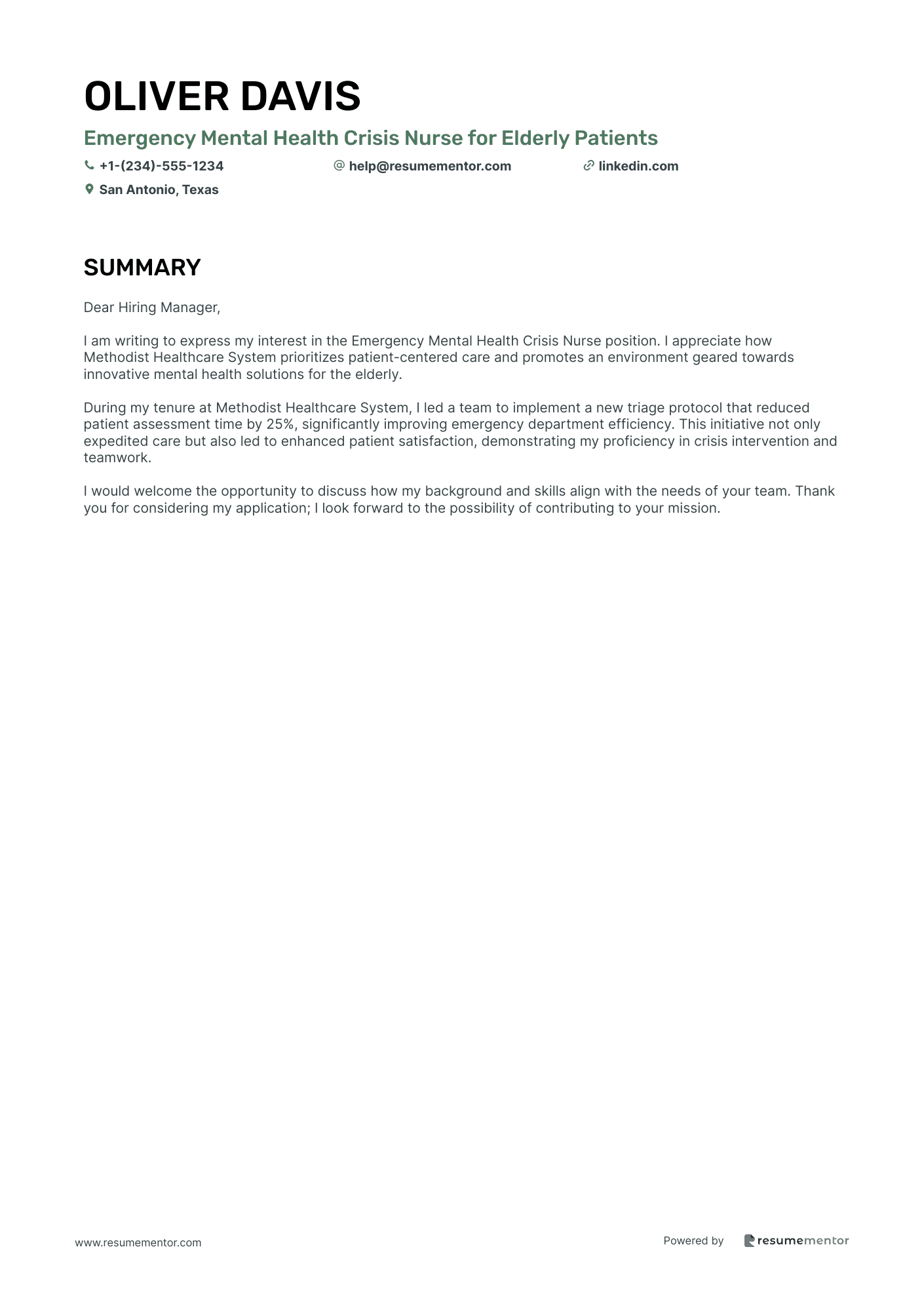
Emergency Mental Health Crisis Nurse for Elderly Patients
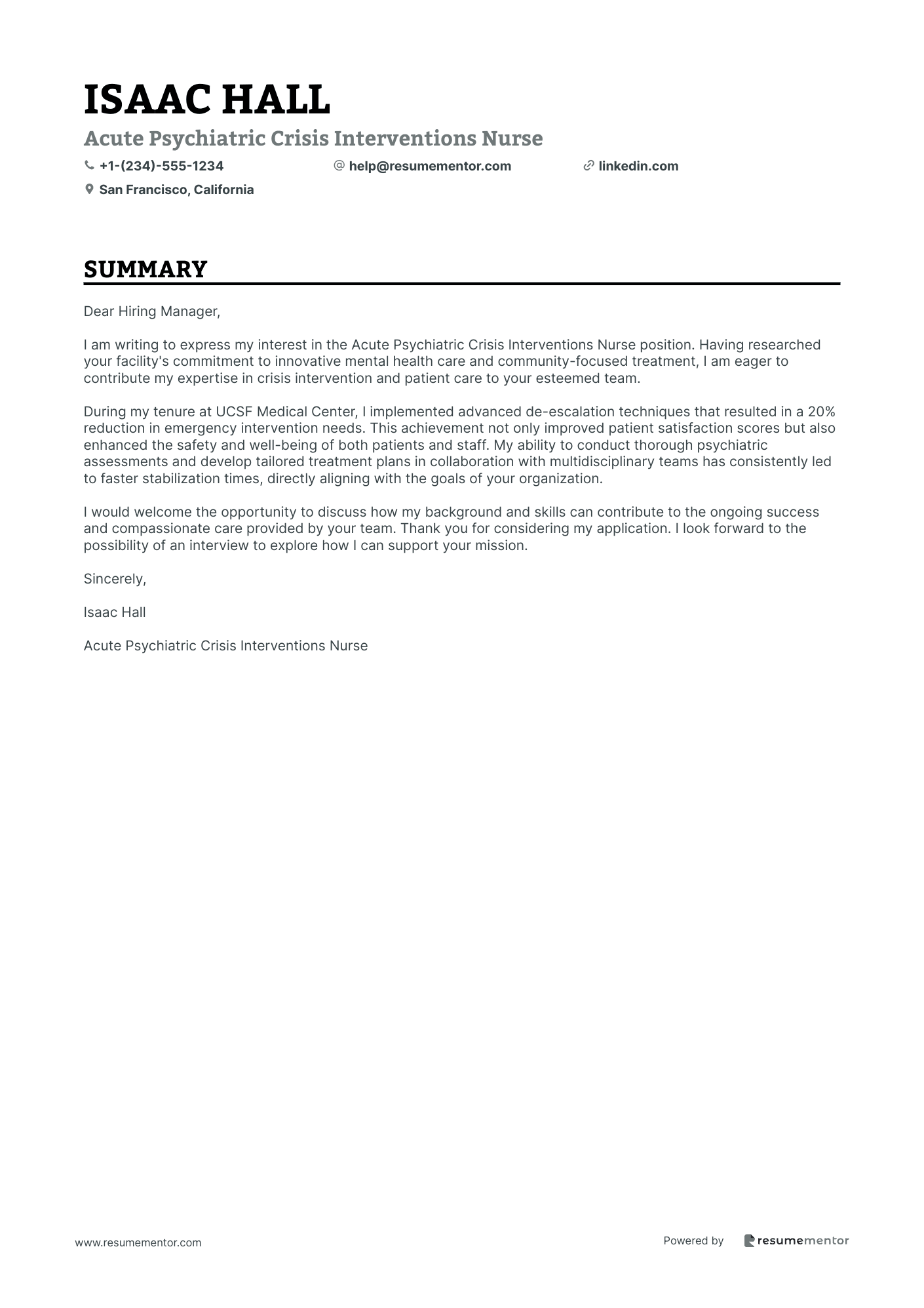
Acute Psychiatric Crisis Interventions Nurse
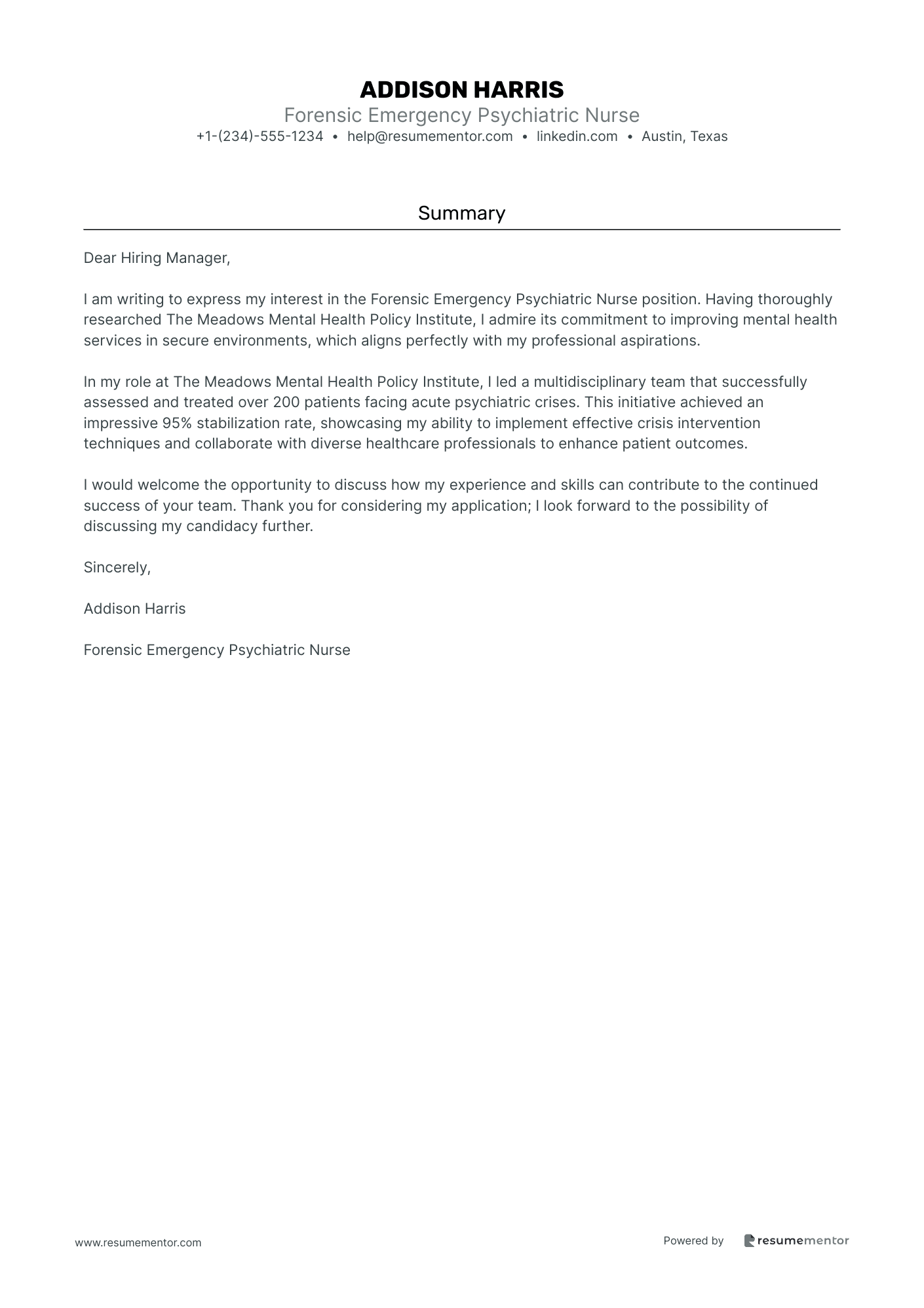
Forensic Emergency Psychiatric Nurse
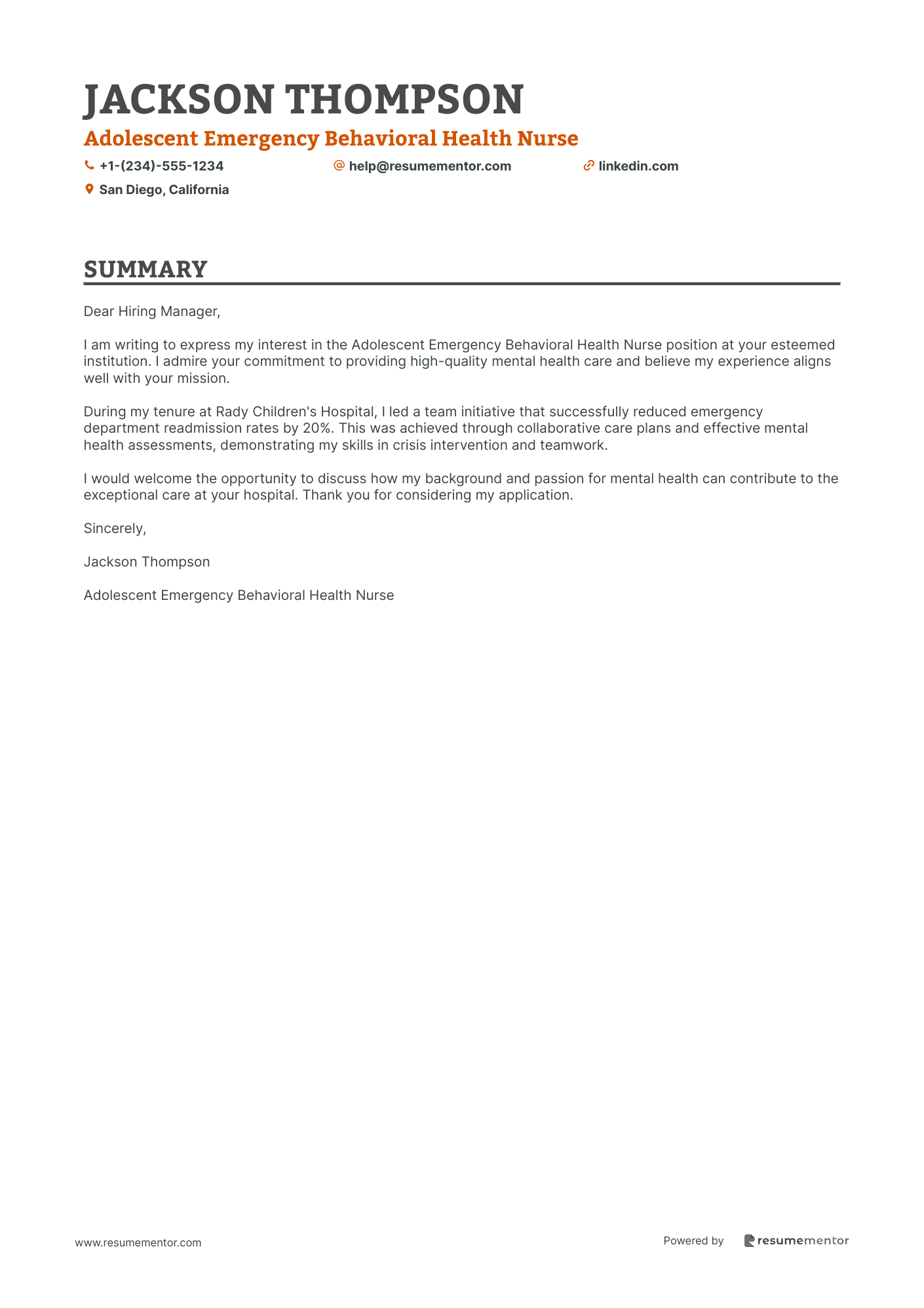
Adolescent Emergency Behavioral Health Nurse
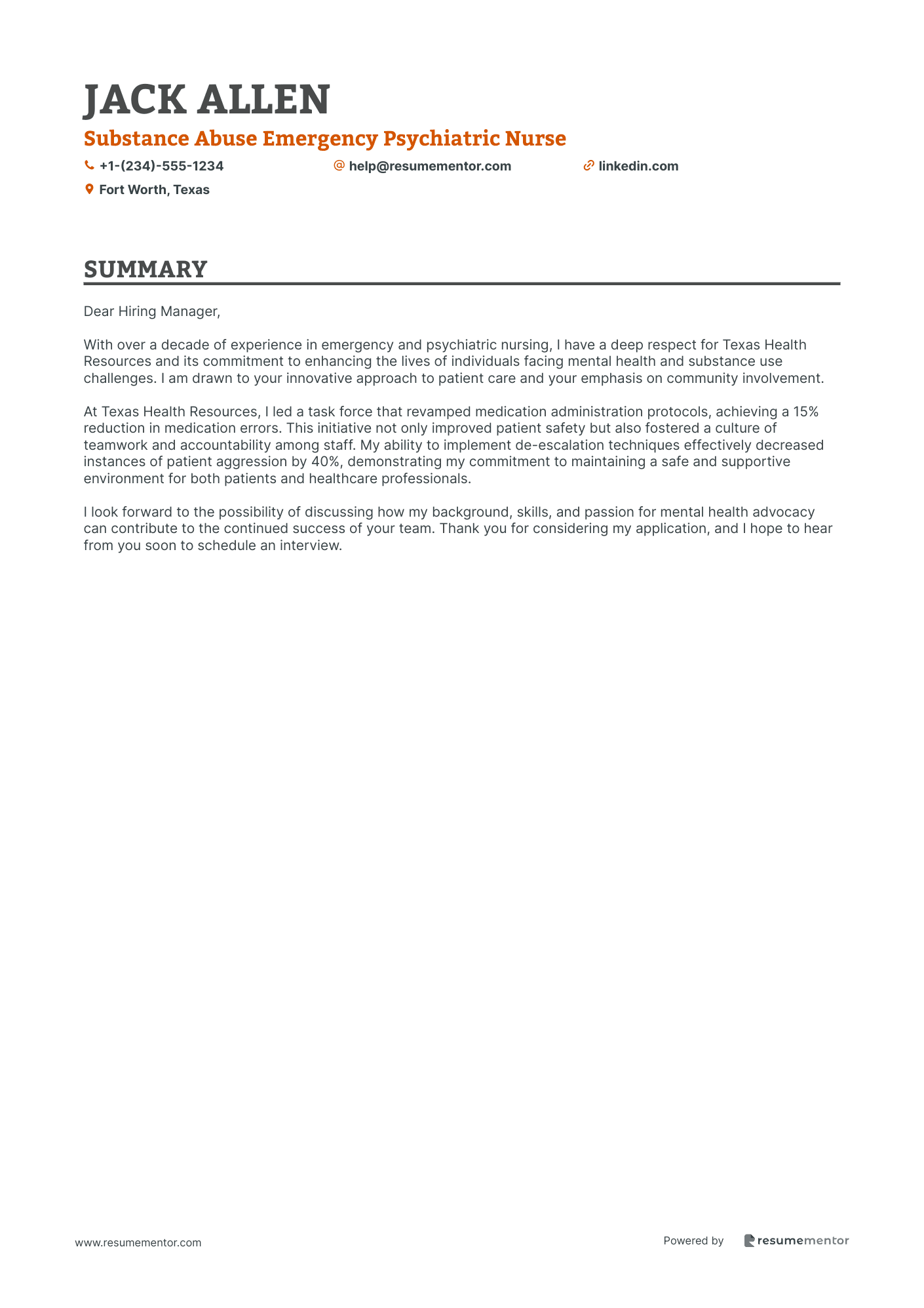
Substance Abuse Emergency Psychiatric Nurse
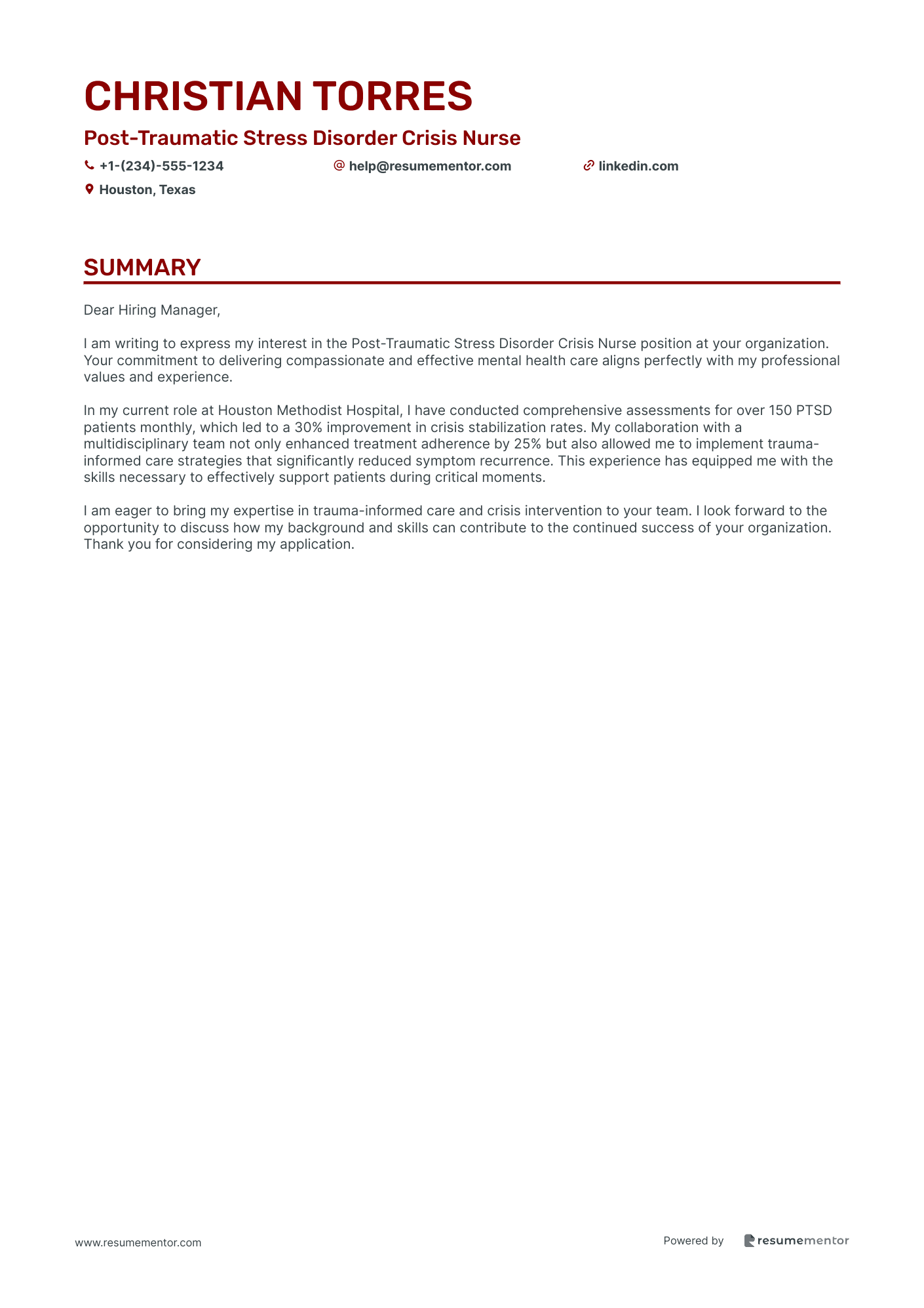
Post-Traumatic Stress Disorder Crisis Nurse
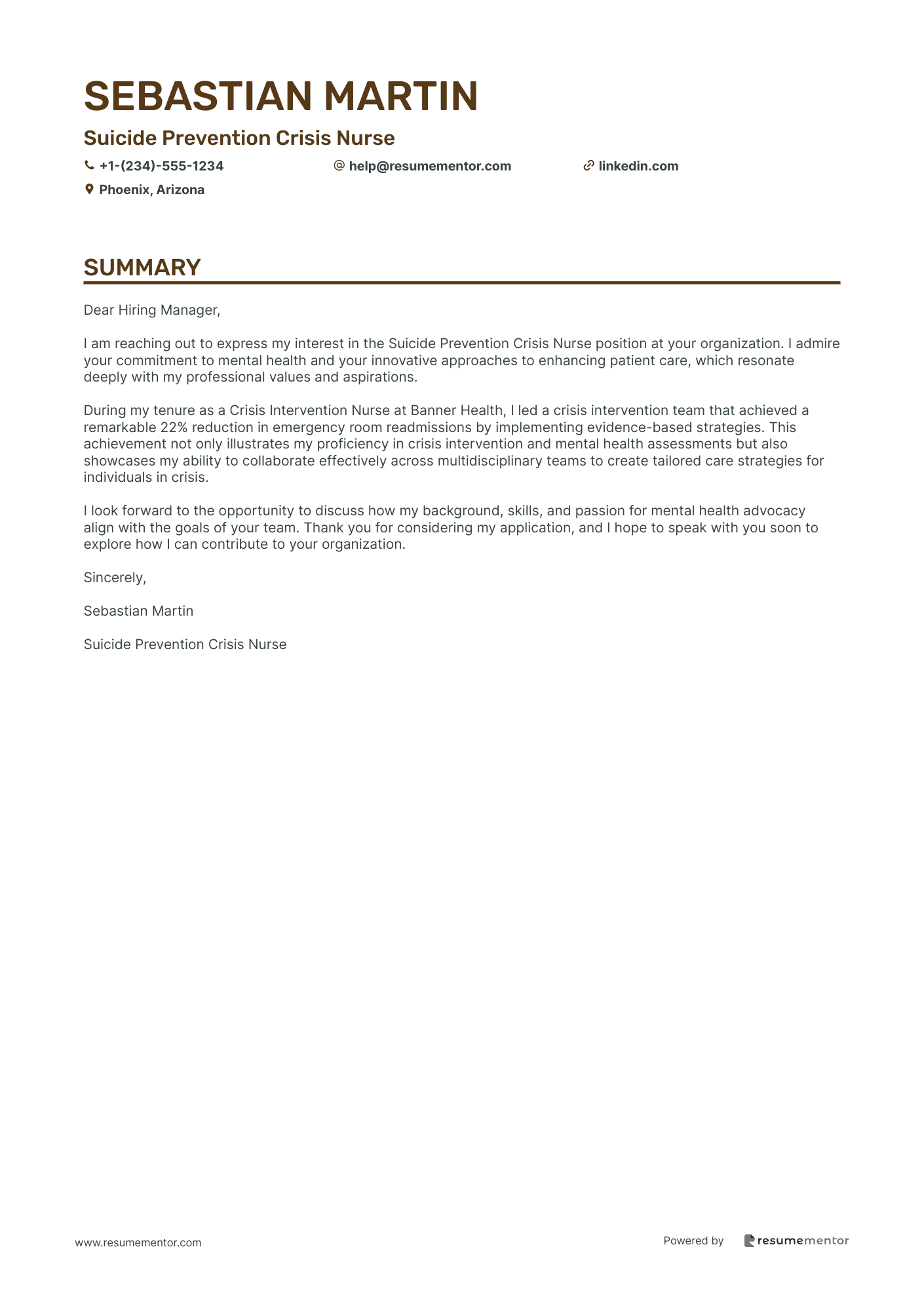
Suicide Prevention Crisis Nurse
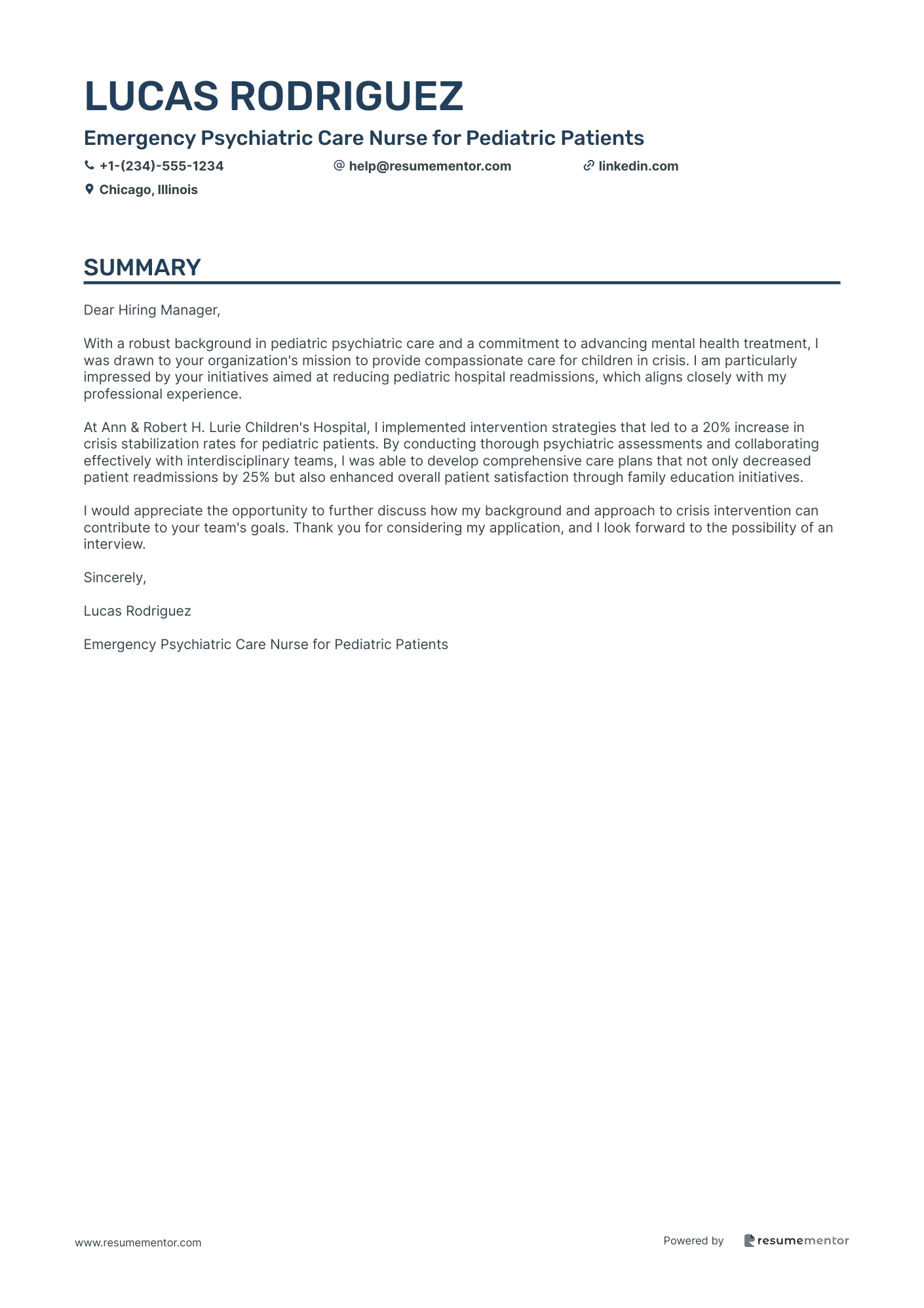
Emergency Psychiatric Care Nurse for Pediatric Patients

Trauma-focused Emergency Psychiatric Nurse cover letter sample
Emergency Mental Health Crisis Nurse for Elderly Patients cover letter sample
Acute Psychiatric Crisis Interventions Nurse cover letter sample
Forensic Emergency Psychiatric Nurse cover letter sample
Adolescent Emergency Behavioral Health Nurse cover letter sample
Post-Traumatic Stress Disorder Crisis Nurse cover letter sample
Suicide Prevention Crisis Nurse cover letter sample
Emergency Psychiatric Care Nurse for Pediatric Patients cover letter sample
Related Articles

Continue Reading
Check more recommended readings to get the job of your dreams.
Resume
Resources
Tools
© 2026. All rights reserved.
Made with love by people who care.
